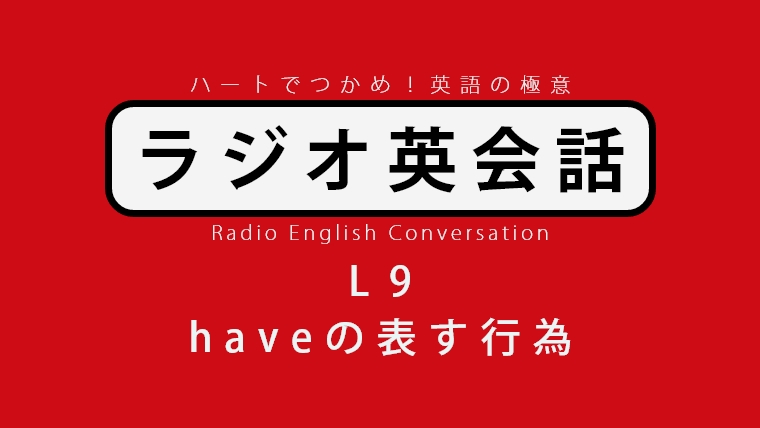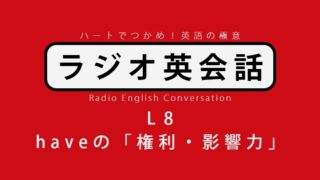NHKラジオ英会話のディクテーション「haveの表す行為」L9 2022/4/14

ディクテーション
講師陣の英会話を書きとり(スクリプト)
大西先生、クリスさん、ろーざさんの英会話部分を書きとってみましょう!(大西先生のギャグもできるだけ書きとります。)
Opening
Ohnishi: 学習者の成長曲線は必ずしも穏やかじゃない。もっと自由に、拡げろ、イメージの解釈を。
ラジオ英会話ハートでつかめ英語の極意、講師の大西泰斗です。
Roza: 先生、何?かっこよかったじゃないですか?Hey everyone. Akino Roza here. Let’s get started.
Chris: Chris McVay here. Looks like the only important thing is … voice.
Ohnishi: それではさっそく始めていきましょう。
“on the internet” 4:25
Ohnishi: So, why do you use “on” here?
Roza: Well, because we think of the internet as a sort of platform.
Chris: Right. And you imagine, right, a platform is a wide flat space where you can stand on. That’s the image with internet, too.
ダイアログ和訳の後
今日はありませんでした
Practice 10:00
Chris: OK, guys. Let’s further deepen our knowledge of have. Now, we’ve stated have is basically static. But it can be used to introduce certain activities indirectly. “have dinner” … it doesn’t sound like much action is there, but actually behind the scenes it is. So, have can be used in these cases. So, let’s practice some of these phrases together.
Roza: And remember, don’t think in Japanese.
Chris: So, “have tea”, try?
“have dinner”, “have a call”. That’s it.
Roza: OK, up next is, “have a bath”, “have a drink”, “have a fight”, “have a try”, “have a talk”.
Chris: And the very short one, “be had”. Imagine the activity involved there … “be had”.
Once more, “be had”.
Roza: And last, “can’t have such behavior”, “won’t have such behavior”.
Great job.
Chris: Excellent. Well done.
have の基本イメージは「静的」ですが、ある種の「アクション」を間接的に表すこともできます。そのアクションに伴う情景が背後にある感じ、ですね。
Ending
Ohnishi: Hey guys, have you ever been had?
Roza: Well, I think Chris went to a very expensive restaurant the other day. And he felt like he had been had.
Chris: Roza, the answer is I’ve never been had because I’m far too smart, OK?
Roza: If you say so.
・・・・・
Ohnishi: というわけで今日はこの辺で。
All: Bye.
頭が良すぎるから騙されることなんてない、って言ってるのかな?!
~ ディクテーションした内容やその解釈などに、聞き間違いや認識違いがある可能性はあります。ご了承ください ~


